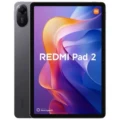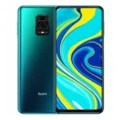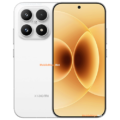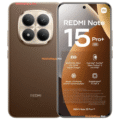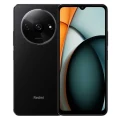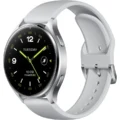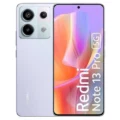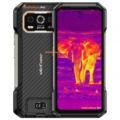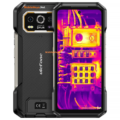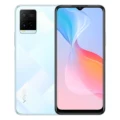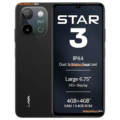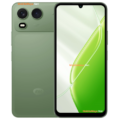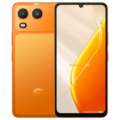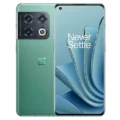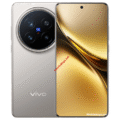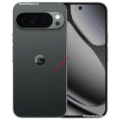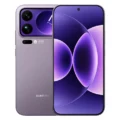Price List: Under Tk.5,000 | Tk.5001-10000 | Tk.10001-15000 | Tk.15001-20000 | Tk.20001-30000 | Tk.30001-40000 | More Mobiles
- Home
- All Mobile
- Xiaomi
- Xiaomi Redmi 10
Xiaomi Redmi 10
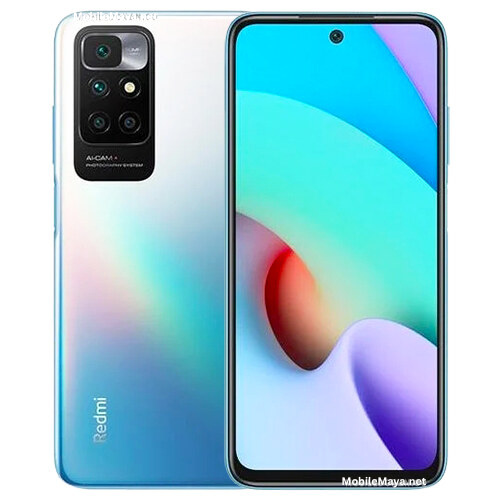

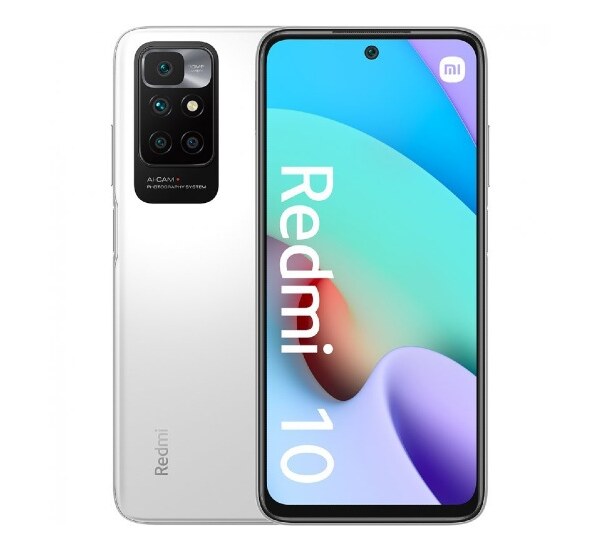
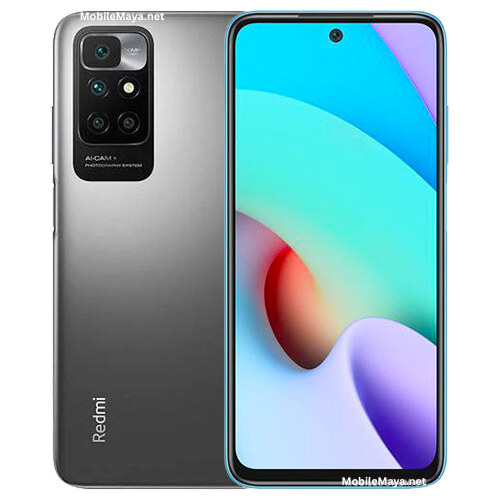
Specifications
Price in Bangladesh
| Official | 4GB 64GB ৳18,999 / 4GB 128GB ৳19,999 / 6GB 128GB 20,999 |
| Unofficial Unofficial prices and phones are available only non authorized shops. The device does not come with an official warranty in Bangladesh. | 4GB 64GB ৳14,000 / 6GB 128GB 16,500 |
General
| Device Type | Smartphone |
| Model | 21061119AG, 21061119DG, 21061119AL |
| Announced | August, 2026 |
| Released | August, 2026 |
| Status | Available |
Hardware & Software
| Operating System OS => Every computer system run on a base software called Operating System (OS). Operating System controls all basic operations of the computer (such as smartphone, PDAs, tablet computers and other handheld devices). The Operating System allows the user to install and run third party applications (apps), apps are used to add new functionality to the device. | Android |
| OS Version | v11 |
| User Interface UI or user interface of a device is the look and feel of the on-screen menu system. How it works, its color scheme, how it responds to button presses, all of these things are part of the user interface. | MIUI |
| Chipset Chipset is a group of integrated circuits designed to perform one or a more dedicated functions, often with real time computing constraints, Popular smartphones are equipped with more advanced embedded chipsets that can do many different tasks depending on their programming. | MediaTek Helio G88 |
| CPU CPU (Central Processing Unit) mostly known as processors, CPU processes instructions in order to carry out certain functions that make your device operate properly. Processors are often described as the brain of computers, smartphones and tablets, Smartphones and tablets rely on processors to carry out their every task, Processors are an incredibly important factor in selecting any type of computing device, including your smartphone. | Octa core (2 GHz, Dual core, Cortex A75 + 1.8 GHz, Hexa Core, Cortex A55) |
| CPU Cores | 8 Cores |
| Architecture | 64 bit |
| Fabrication | 12 nm |
| GPU GPU (Graphics Processing Unit) is a single-chip processor designed to rapidly manipulate and alter memory to accelerate the creation of images in a frame buffer intended for output to a display, This includes things such as lighting effects, object transformations, and 3D motion. | Mali-G52 MC2 |
| RAM (Memory) RAM (Random Access Memory) is a type of computer memory that can be accessed randomly, any byte of memory can be accessed without touching the preceding bytes that allows information to be stored and accessed quickly from random locations. RAM is the most common type of memory found in computer systems, smartphones, tablets and other electronic devices. | 4 GB, 6 GB |
Design
| Dimensions | 162 x 75.5 x 8.9 mm (6.38 x 2.97 x 0.35 in) |
| Weight | 181 g (6.38 oz) |
| Colors |
Carbon Gray, Pebble White, Sea Blue |
Display
| Display Type Display Technology => A number of display technologies and types used in mobile phones => TFT (Thin Film Transistor), IPS (In-Place Switching), OLED (Organic Light Emitting Diode), AMOLED (Active-Matrix Organic Light-Emitting Diode), Super AMOLED (an even advanced version of AMOLED), Resistive Touchscreen (Resistive touchscreens contain two layer of conductive material with a very small gap between them which acts as a resistance), Capacitive Touchsceen (Capacitive touchscreen technology consists of a layer of glass coated with a transparent conductor) | LCD |
| Size | 6.5 inches (16.51 cm) |
| Resolution | 1080x2400 px (FHD+) |
| Aspect Ratio | 20:9 |
| Pixel Density Pixel Density (PPI) is refers to the concentration of pixels on a particular display, measured in pixels per inch (ppi). Pixel density is calculated by dividing the diagonal pixel resolution of a display by its diagonal size, higher pixel density better display quality. | 405 ppi |
| Screen to Body Ratio | 83.45 % |
| Touch Screen | Capacitive Touchscreen, Multi-touch |
| Refresh Rate | 90 Hz |
| HDR 10 / HDR+ support |
Rear Camera
| Camera Setup | Quad |
| Main Camera | 50 MP, f/1.8, (wide), PDAF |
| Second Camera | 8 MP (ultrawide) |
| Third Camera | 2 MP (macro) |
| Fourth Camera | 2 MP (depth) |
| Autofocus | Yes |
| OIS | |
| Flash Flash Light => There is commonly two types of flash lights are used in camera mobile phones, LED Flash (LED flash offers lower power consumption with drive circuitry that takes up very little room, LEDs can be strobed faster than any other light source), Xenon Flash (xenon flash produces an extremely intense full-spectrum white light for a very short duration) | LED Flash |
| Image | 8150 x 6150 Pixels |
| Settings | Exposure compensation |
| Zoom | Digital Zoom |
| Shooting Modes | Continuous Shooting, High Dynamic Range mode (HDR) |
| Aperture | f/1.8 |
| Camera Features |
Auto Flash, Face detection, Touch to focus |
| Video | 1080p@30fps |
| Video Recording Features | 1920x1080, 1280x720 |
| Video FPS | 30 fps |
Front Camera
| Camera Setup | Single |
| Secondary |
8 MP, f/2.0, (wide), 1/4.0”, 1.12µm |
| Aperture | f/2.0 |
| Video | 1080p@30fps |
| Video FPS | 30 fps |
Battery
| Battery Type Battery Type => Cell phones run on various kinds of batteries depending on the manufacturer, phone size or shape and features. There are basically four types of cell phone batteries => Lithium Polymer, Lithium Ion, Nickel Metal Hydride and Nickel Cadmium. | Li-Ion (Lithium Ion) |
| Placement | Non-removable |
| Capacity Battery Capacity is a measure (typically in Amp-hr) of the charge stored by the battery, and is determined by the mass of active material contained in the battery. The battery capacity represents the maximum amount of energy that can be extracted from the battery under certain conditions. | 5000 mAh |
| Quick Charging | Fast, 18W |
| USB Type-C | USB Type-C 2.0 |
Storage
| Storage Type | eMMC |
| Storage Capacity | 64 GB, 128 GB |
| USB OTG |
Network
| 2G Network |
GSM 850 / 900 / 1800 / 1900 |
| 3G Network |
HSDPA 850 / 900 / 1900 / 2100 |
| 4G Network |
1, 2, 3, 4, 5, 7, 8, 20, 28, 38, 40, 41 |
| SIM SIM (Subscriber Identity Module) is a small card that contains mobile network subscriber's account information. This allows the phone using the card to attach to a mobile network. The SIM card is most commonly associated with GSM and UMTS mobile networks. Moving a SIM card from one phone to another allows a subscriber to switch mobile phones without having to contact their mobile network carrier. SIM cards can also be used by a phone to store limited amounts of data, such as phone numbers and text messages. | Standard SIM |
Data
| GPRS GPRS (General Packet Radio Service) is a packet oriented mobile data service on the 2G and 3G cellular communication system's global system for mobile communications (GSM), Generally, GPRS is used for the purpose of wireless data transfer, such as sharing pictures and videos or browsing the Internet via a mobile phone connection. | |
| EDGE EDGE (Enhanced Data GSM Environment) is a wireless network technology generally considered the next step in the 2G network offers data transfer rates up to four times faster than ordinary GSM networks, Generally, EDGE is used for the purpose of wireless data transfer, such as sharing pictures and videos or browsing the Internet via a mobile phone connection. | |
| Speed | HSPA, LTE (CA) |
| Web Browser Web Browser => a web browser is a software application used to locate, retrieve and display content on the World Wide Web, including Web pages, images, video and other files, The primary function of a web browser is to render HTML, the code used to design or markup webpages. | HTML5 |
Messaging
| SMS SMS (Short Messaging Service) is a text messaging service component of phone, Web, or mobile communication systems. It uses standardized communications protocols to allow mobile phone devices to exchange short text messages over the networks. | Yes |
| MMS MMS (Multimedia Messaging Service) is a standard way to send messages that include multimedia content (audio clips, video clips and images) to and from mobile phones over wireless networks using the WAP protocol. | |
| Email Email (Electronic Mail) is a system for receiving, sending, and storing electronic messages, Similar to a letter, email is text messages that may contain files, images, or other attachments sent via the internet to a recipient by using applications and software prograps. An email address is required to receive email, and that address is unique to the user. | Yes |
| IM IM (Instant Messaging) is an exchange of text messages through a software application, it enable you to create a kind of private chat room with another individual in order to communicate in real time over the Internet. | Yes |
Connectivity
| Bluetooth Bluetooth is a wireless communications technology for exchanging data between mobile phones, headsets, computers and other network devices over short distances without wires, Bluetooth technology was primarily designed to support simple wireless networking of personal consumer devices. | 5.1, A2DP, LE |
| Wi-fi Hotspot | |
| Infrared Infrared connectivity is an old wireless technology used to connect two electronic devices. It uses a beam of infrared light to transmit information and so requires direct line of sight and operates only at close range. | |
| USB | USB Type-C 2.0 |
| GPS GPS The Global Positioning System is a satellite-based radio navigation system, GPS permits users to determine their position, velocity and the time 24 hours a day, in all weather, anywhere in the world, In order to locate your position, your device or GPS receiver must have a clear view of the sky. | GPS, GLONASS, GALILEO, BDS |
| NFC NFC (Near field communication) is a set of standards for smartphones and similar devices to establish peer-to-peer radio communications with each other by touching them together or bringing them into proximity, usually no more than a few inches. |
Media
| FM Radio | FM radio |
| Loudspeaker | Yes, with stereo speakers |
| 3.5mm Jack | Yes |
Sensors & Security
| Fingerprint Sensor | |
| Fingerprint Sensor Position | Side-mounted |
| Light Sensor | Light sensor, Proximity sensor, Accelerometer, Compass |
| Face Unlock | Yes |
More
| Made By | China |
Performance Tests
| Display | 1494:1 contrast ratio, 477 nits max brightness (measured) |
| Loudspeaker | -26.3 LUFS (Good) |
| Battery (old) | Endurance rating 127h |
PROS
- Smooth 90Hz Full HD+ display for vibrant and fluid visuals
- Versatile quad-camera setup with a powerful 50MP main sensor
- Large 5000mAh battery offering long-lasting usage
- Expandable storage via microSD card for added flexibility
- Convenient side-mounted fingerprint sensor and face unlock
- Affordable price with balanced performance for daily tasks
CONS
- No 5G network support, limiting future-proof connectivity
- LCD display instead of AMOLED, with less vivid colors and contrast
- Average fast charging speed compared to some competitors
- Plastic body design feels less premium
- Low-light camera performance is mediocre
- Software update support may be limited over time
Xiaomi Redmi 10 Price in Bangladesh
The Xiaomi Redmi 10 is available in Bangladesh with multiple storage and RAM options, starting at an official price of ৳18,999 for the 4GB RAM and 64GB storage variant. The 4GB RAM with 128GB storage model is priced at ৳19,999, while the 6GB RAM and 128GB storage option costs ৳20,999. Positioned as an affordable mid-range smartphone, the Redmi 10 offers a compelling blend of features including a large 6.5-inch Full HD+ display with 90Hz refresh rate, a versatile 50MP quad-camera setup, and a robust MediaTek Helio G88 processor. The device caters well to users who want solid everyday performance, good photography, and decent battery life, all wrapped in a sleek design.
Price & Variants
| RAM & Storage | Price (BDT) | Status |
|---|---|---|
| 4GB RAM + 64GB | ৳18,999 | Official |
| 4GB RAM + 128GB | ৳19,999 | Official |
| 6GB RAM + 128GB | ৳20,999 | Official |
| 4GB RAM + 64GB | ৳14,000 | Unofficial |
| 6GB RAM + 128GB | ৳16,500 | Unofficial |
Xiaomi Redmi 10 Specifications
The Xiaomi Redmi 10 is a feature-packed mid-range smartphone launched in August 2021, boasting a blend of practical hardware and smart design.
| Feature | Details |
|---|---|
| Model Name | Xiaomi Redmi 10 |
| Release Date | August 20, 2021 |
| Market Availability | Available |
| Official Price | Starting ৳18,999 |
| RAM & Storage | 4GB/6GB RAM, 64GB/128GB Storage |
Display and Design
The Redmi 10 sports a sizable 6.5-inch LCD display with a crisp Full HD+ resolution of 1080×2400 pixels and a 20:9 aspect ratio, delivering sharp visuals at 405 pixels per inch (ppi). It features a smooth 90Hz refresh rate and supports HDR10 for enhanced dynamic range, ensuring a pleasant viewing experience whether you’re streaming videos or scrolling through apps. The screen is capacitive with multi-touch support, and the screen-to-body ratio stands at a healthy 83.45%. Physically, the phone measures 162 x 75.5 x 8.9 mm and weighs 181 grams, offering a comfortable grip. It comes in attractive color options like Carbon Gray, Pebble White, and Sea Blue, presenting a modern yet understated aesthetic.
Performance and Processor
Powered by the MediaTek Helio G88 chipset built on a 12nm process, the Redmi 10 delivers balanced performance for everyday tasks and casual gaming. Its octa-core CPU configuration includes two Cortex-A75 cores clocked at 2.0 GHz and six Cortex-A55 cores at 1.8 GHz, coupled with the Mali-G52 MC2 GPU. The device comes with 4GB or 6GB of RAM and internal storage options of 64GB or 128GB, expandable via microSD card through a dedicated slot. This combination ensures smooth multitasking, decent gaming performance, and ample storage for media and apps.
Camera and Video
The Xiaomi Redmi 10 features a versatile quad-camera array on the back. The primary sensor is a high-resolution 50MP shooter with an f/1.8 aperture, supported by an 8MP ultrawide lens, a 2MP macro camera, and a 2MP depth sensor. It supports autofocus, LED flash, and a variety of camera modes including HDR and continuous shooting. For video, the rear cameras can record up to 1080p at 30fps. On the front, there is an 8MP wide-angle selfie camera with an f/2.0 aperture, capable of 1080p video recording at 30fps. The camera setup is ideal for users who enjoy photography with multiple shooting options and AI enhancements.
Battery and Charging
Equipped with a robust 5000mAh non-removable lithium-ion battery, the Redmi 10 promises long-lasting usage that easily covers a full day of moderate to heavy use. It supports 18W fast charging via a USB Type-C 2.0 port, allowing for relatively quick top-ups. The large battery capacity combined with the efficient MediaTek Helio G88 chipset ensures good power management and endurance.
Connectivity and 5G Support
This device supports 2G, 3G, and 4G LTE networks across multiple bands but does not support 5G connectivity. It comes with dual SIM slots, Bluetooth 5.1, Wi-Fi hotspot capabilities, infrared sensor, USB Type-C 2.0, and standard GPS with support for GLONASS, Galileo, and BDS satellite systems. The inclusion of a 3.5mm headphone jack adds convenience for wired audio enthusiasts.
Additional Features
The Redmi 10 runs on Android 11 out of the box with Xiaomi’s MIUI skin layered on top, providing a familiar and customizable user experience. It offers side-mounted fingerprint sensor for quick and secure unlocking, face unlock, and includes essential sensors such as light sensor, proximity sensor, accelerometer, and compass. The device also boasts stereo speakers for enhanced audio output and retains an FM radio tuner for traditional radio listening.
Reason to Bu
- Affordable price point with solid performance
- Large, vibrant 90Hz Full HD+ display ideal for media consumption
- Versatile quad-camera system with a powerful 50MP primary sensor
- Long-lasting 5000mAh battery with fast charging support
- Expandable storage via microSD card
- Stereo speakers and 3.5mm headphone jack for better audio options
- Sleek design with multiple color choices
Verdict
The Xiaomi Redmi 10 is a commendable mid-range smartphone that offers excellent value for its price. It is perfectly suited for users looking for a balanced device capable of handling daily tasks, casual gaming, and photography without breaking the bank. Its standout features include a high-refresh-rate display, a high-resolution quad-camera setup, and a sizable battery — all packaged in a lightweight and attractive design. While it lacks 5G support, it still provides strong connectivity options and a fluid user experience, making it a solid choice for budget-conscious buyers.
FAQ
Q: Does the Xiaomi Redmi 10 support 5G?
A: No, the Redmi 10 supports 2G, 3G, and 4G LTE networks but does not support 5G.
Q: Is the storage expandable?
A: Yes, the phone supports microSD card expansion via a dedicated slot.
Q: What is the screen refresh rate?
A: The Redmi 10 has a 90Hz refresh rate, offering smoother scrolling and animations.
Q: Does it support fast charging?
A: Yes, the phone supports 18W fast charging through the USB Type-C port.
Q: What version of Android does it run?
A: The Redmi 10 runs Android 11 with MIUI on top.
Alternatives to Xiaomi Redmi 10
- Realme Narzo 50A Prime – Offers similar specs with a slightly larger battery and a MediaTek Helio G85 chipset.
- Samsung Galaxy M12 – Known for its bigger 6000mAh battery and 90Hz display but with a different chipset.
- Infinix Hot 11S – Features a MediaTek Helio G88 chipset, 90Hz display, and a competitive camera setup.
- Poco X3 Pro – A step up with a Snapdragon 860 processor, better performance, and 5G support.
User Reviews
Disclaimer Note
We do not guarantee that the information of this page is 100% accurate and up to date.



